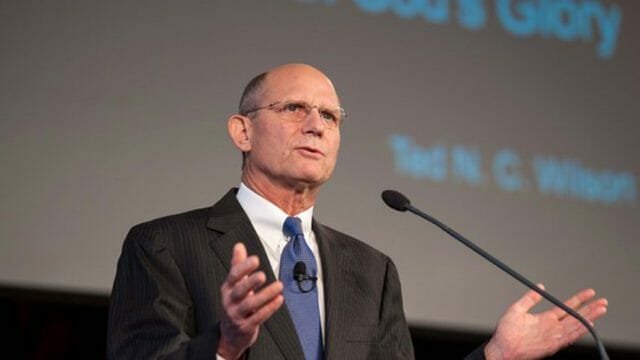We were made for more.

Guillermo Díaz-Plaja, notable Spanish poet, described the transience of time in this brief poem:
“Fast-running deer, / The future slips away.
O moving target! / Insubstantial arrow!
How you pull from me: / Elusory tomorrow,
Unwritten poem, / Love up in the air.
How, irredeemably / Today becomes undone
Soaked in the giddiness / Of nobody’s future.”1
These elegant and despairing poetic phrases find a profound echo in each heart. In one way or another, all of us painfully recognize that life is transitory. All of us feel, in an unavoidable way, whether we want to or not, that we are “inserted” in time, in a process of continuous change.
The incessant ticktock of the clock; the fluctuating face of life’s different stages; the unstoppable and even cruel decline that we experience in old age; the unwanted and fatal presence of death. All remind us relentlessly that we are finite and mortal creatures.
As the psalmist recognized in this well-known statement of profound drama: “As for man, his days are like grass; he flourishes like a flower of the field; for the wind passes over it, and it is gone, and its place knows it no more” (Ps. 103:15, 16).2 And Job, in the midst of his pain, compared the human life with a “shadow” that flees and “continues not” (cf. Job 14:1, 2).
But that’s not all.
Eternity in Our Heart
We are not just as fleeting as a cloud that passes. We also yearn for permanence and thirst for eternity. God has put in the human soul an irrepressible longing to live forever. As Israel’s wise king and poet, Solomon, said about God: “He has put eternity into man’s heart” (Eccl. 3:11).
We are not content with a few years of life. We want to continue without barriers the adventure of learning and facing noble challenges. We want to enjoy without interruption the affection of the people we love. We desire to cherish our relationships with friends. We want to be forever in the resplendent presence of God, source of all good. We want to live in the perfect kingdom that God will establish, free of injustice, disease, pain, and death.
Here is a vision about this new and eternal world that John the Revelator had on the island of Patmos: “Then I saw a new heaven and a new earth, for the first heaven and the first earth had passed away, and the sea was no more. . . . [God] will wipe away every tear from their eyes, and death shall be no more, neither shall there be mourning nor crying nor pain anymore, for the former things have passed away. And he who was seated on the throne said, ‘Behold, I am making all things new’ ” (Rev. 21:1-5).
How does one reach eternity? How does one enjoy a life without disappointments or limits? Let’s first point out that only God is eternal, as is indicated in God’s revealed Word. In contrast to the transitoriness and smallness of humanity, the Scriptures underline the permanence and greatness of God. He is before and after all things.
“Lord,” assured Moses, “you have been our dwelling place in all generations. Before the mountains were brought forth, or ever you had formed the earth and the world, from everlasting to everlasting you are God. . . . For a thousand years in your sight are but as yesterday when it is past, or as a watch in the night” (Ps. 90:1-4).
And Jeremiah asserts, “The Lord is the true God; he is the living God and the everlasting King” (Jer. 10:10).
But this great and eternal God is also a good God.
A Precious Gift
He desires that we, mortal and finite creatures, will receive the blessed gift of eternity. He told us so in this well-known verse: “For God so loved the world, that he gave his only Son, that whoever believes in him should not perish but have eternal life” (John 3:16). Paul reiterated this precious promise: “For the wages of sin is death, but the free gift of God is eternal life in Christ Jesus our Lord” (Rom. 6:23). When we believe in Jesus Christ as our Saviour and accept the merits of His sacrifice on the cross, eternal life has already begun for us: “Whoever believes in the Son has eternal life” (John 3:36). The temporal death that every believer suffers at the end of their days is merely a fleeting dream, because their “life is hidden with Christ in God” (Col. 3:3).
Soon the miseries of the present time will be left behind, and the perfect eternity that God offers us freely in Jesus Christ will begin. Praise be to His holy name! You and I will be able to live forever.
It will be a life without end, as the stars, and full of richness, as the mercy of God.
1 Guillermo Díaz–Plaja, Poesía junta (Buenos Aires: Editorial Losada, 1967), p. 37. The English translation is the author’s.
2 Unless otherwise noted, all Scripture quotations are from The Holy Bible, English Standard Version, copyright © 2001 by Crossway Bibles, a division of Good News Publishers. Used by permission. All rights reserved.








